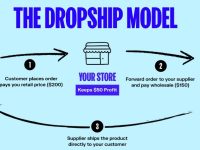Why Can’t We Sell Replica Products on Shopify, BigCommerce, Wix, Ecwid or Other SaaS Platforms?
What Is SaaS E-commerce?
First of all, let’s understand the concept of SaaS e-commerce. SaaS (Software as a Service) e-commerce refers to cloud-based e-commerce platforms that users can access through any web browser. In simple terms, sellers can build an independent online store using a SaaS e-commerce platform without needing to develop the backend from scratch.

Some well-known SaaS platforms include Shopify, BigCommerce, Wix, and Ecwid—especially Shopify, which is widely recognized for its ease of use and powerful features. These platforms typically operate on a subscription-based model, allowing anyone to open an online store quickly and manage it with minimal technical knowledge.

Why SaaS Platforms Are Not Suitable for Selling Replica Products
While these platforms are great for selling legal and original products, they are not suitable for selling replica or designer-inspired items. In fact, none of the major SaaS e-commerce platforms allow the sale of replica products.
Why Are Replica Items Prohibited on SaaS E-commerce Platforms?
Platform Policies and Legal Liability
All of these platforms strictly prohibit the sale of counterfeit or replica products due to intellectual property laws. If a seller uploads replica items, the platform could be held legally liable for hosting infringing content. Therefore, they enforce strict policies to avoid copyright issues.
Business Model Does Not Rely on Replica Sales
SaaS platforms generate revenue through subscriptions, transaction fees, and add-on services like premium themes, plugins, and integrations—not through product sales. Selling replicas goes against their business model and exposes them to legal risks, which they actively avoid.
In short, if you attempt to sell replicas on a SaaS platform, your store may be removed and your account frozen, possibly along with any funds in your payment processor.
Lack of Support for Replica Business Logic
It’s also important to note that replica e-commerce is not a market these platforms are designed to serve. They do not understand the complexities, trends, and unique requirements of the replica industry.
For example, advertising strategies in the replica niche often require rapid adaptation to changes in platforms like Facebook or Google. If a new ad policy or algorithm update rolls out, your entire marketing approach must change accordingly.
SaaS platforms cannot provide technical support for advanced methods such as:
Cloaking
Anti-complaint strategies
A/B website frameworks
Rotating payment gateways
To put it simply, these technologies are not supported or encouraged on SaaS platforms.
What’s the Alternative?
Despite these limitations, the replica market remains large and lucrative. So how do replica sellers create their own e-commerce websites?
The answer lies in open-source platforms like:
OpenCart
WordPress (with WooCommerce)
Magento
These self-hosted frameworks allow complete control over your site. On top of that, sellers can integrate custom features and algorithms specifically designed for the replica industry, enabling them to bypass many of the restrictions found on SaaS platforms.
👉 You can read more in this related article: How to Create a Replica Product E-commerce Website?
Final Thoughts
For replica sellers, the key advantage of building a self-hosted website is that it’s not regulated by third-party platforms. You won’t get banned overnight, and you’ll have full control over your domain, content, and operations.





